I recently became aware of how the Liberty work I teach really expose to us not only our greatest strengths and weaknesses, but also what parts of the work we are drawn to.
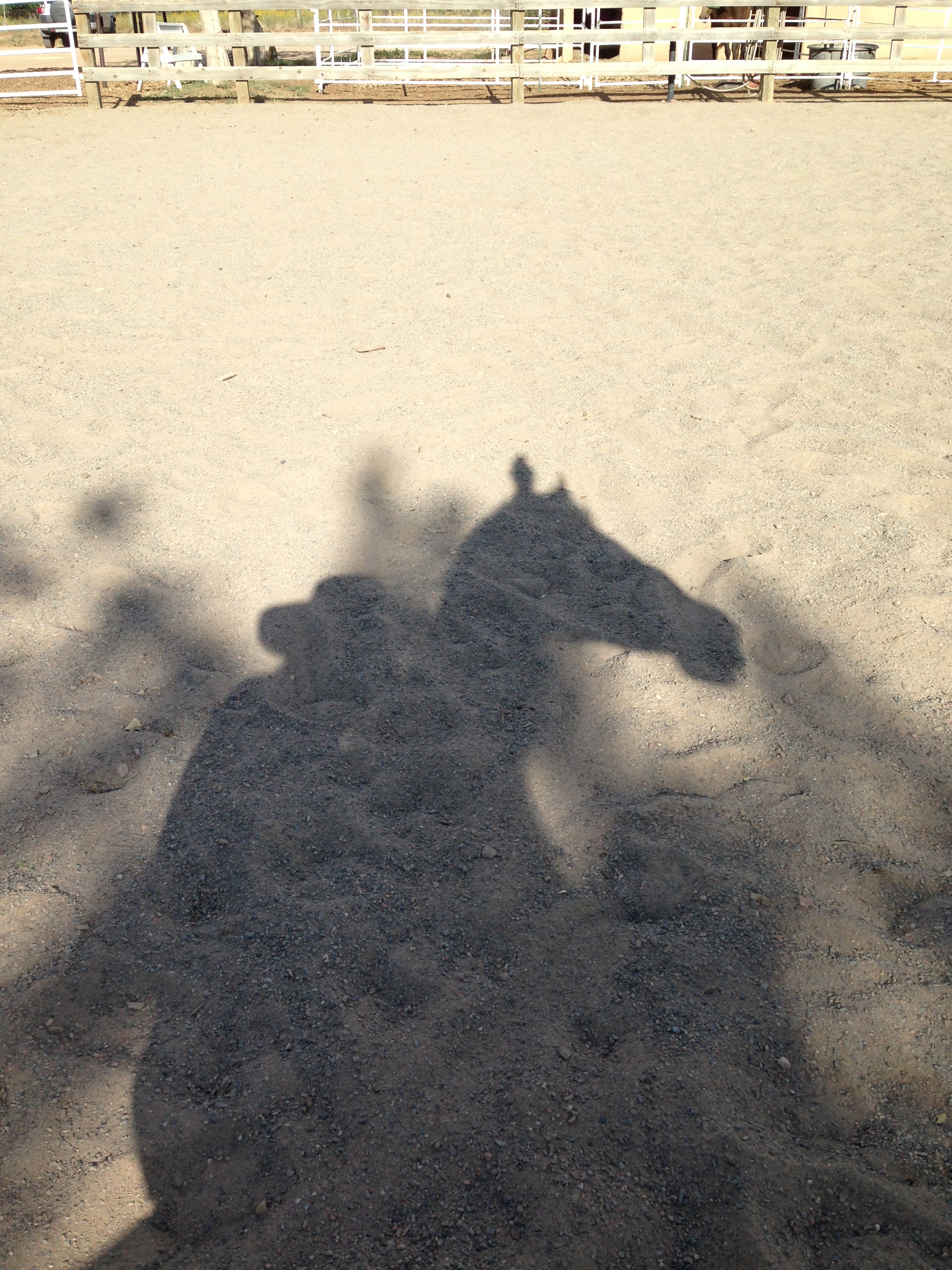 When I first started the work, I wanted to dance with my horse. That seemed so wonderful. I did a bunch of dancing with my horses. Then I began to learn that the horse that I thought would be my dancing horse was disturbed by this somehow, and he would get too excited. At one point I think he felt as though I was teasing him, which I wasn’t.
When I first started the work, I wanted to dance with my horse. That seemed so wonderful. I did a bunch of dancing with my horses. Then I began to learn that the horse that I thought would be my dancing horse was disturbed by this somehow, and he would get too excited. At one point I think he felt as though I was teasing him, which I wasn’t.
Part of this also might have been due to something inside me. The truth comes out: I was an endurance rider and I had Arabs before, so he may have felt nervous feeling that thread of competition that runs through my veins. I took him on trail rides where I assured him he wouldn’t have to “trot til he dropped” and did liberty work which he liked.
So it didn’t matter that I had pure intention, it was what was underlying in me that he responded to. I had to work on what I was inside and be honest about it before I could safely dance with that particular horse. In comparison, my Arab was fine with who I was and never felt threatened or teased by this activity. I believe these horses have differently wired nervous systems.
Recently someone wrote about how they love to do the Staking a Claim foundation. Oddly enough, this foundation shouldn’t be done repeatedly. Staking A Claim is for possible one-time use. It is an exercise where you send your horse away, ultimately to strengthen the bond, by letting the horse know that you can send her off when she is ignoring you or when her behavior is not okay. My horses know I might do it to demonstrate to someone else what the foundation is, so they understand that. But I don’t do it that often and I don’t do it with every horse. I particularly never do it with a horse who is shy, frightened or has been abused.
The thing is, not every foundation is necessary or good for every horse. There are some, such as Walking a Horse Down, we want to get for every horse eventually, but we aren’t going to force the issue.
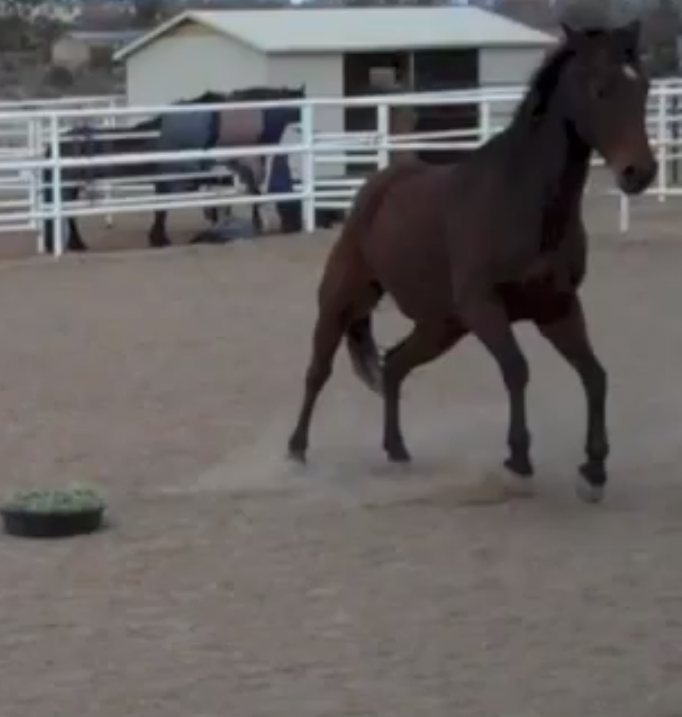 Once after a clinic where I demonstrated the Staking a Claim foundation with a particularly feisty, playful horse, one of the attendees went home and tried it with her timid, frightened mare. I had specifically said this would not be used on certain horses in the clinic, hers being one of them. The mare wouldn’t come near her for days afterward. When I was told about this, I said it doesn’t surprise me. She has probably received enough of this in her life, and even if the intent was different this time, she feels she is being driven away, and absolutely won’t come back.
Once after a clinic where I demonstrated the Staking a Claim foundation with a particularly feisty, playful horse, one of the attendees went home and tried it with her timid, frightened mare. I had specifically said this would not be used on certain horses in the clinic, hers being one of them. The mare wouldn’t come near her for days afterward. When I was told about this, I said it doesn’t surprise me. She has probably received enough of this in her life, and even if the intent was different this time, she feels she is being driven away, and absolutely won’t come back.
In other systems, people have been taught to drive horses away in a dominant way. These actions don’t teach relationship, they teach acquiescence. If that’s what you want, based on fear, then that’s what you’ll get. You won’t get a relationship which is more of a give and take, tuned in connection.
It is thought to be easier to train that way because most horses are hard-wired to accept dominance. That’s why for centuries we’ve been able to ride them into battle and have them haul wagons and do lots of other things. There have been an enlightened few during those medieval times, such as Xenophon, who really paid attention to what the horse needed. But the focus has historically been on getting the job done with horses, not asking them how they feel about it. In actuality, horses like to be with us so they probably would enjoy feeling part of the action, if they were asked their opinions.
That’s why in Liberty Foundations we begin with the very simple exercises of sitting or standing meditations and move up gently to foundations that are a bit more challenging. The horse has to feel confident before you can introduce the Staking the Claim foundation, unless you’re only looking for acquiescence.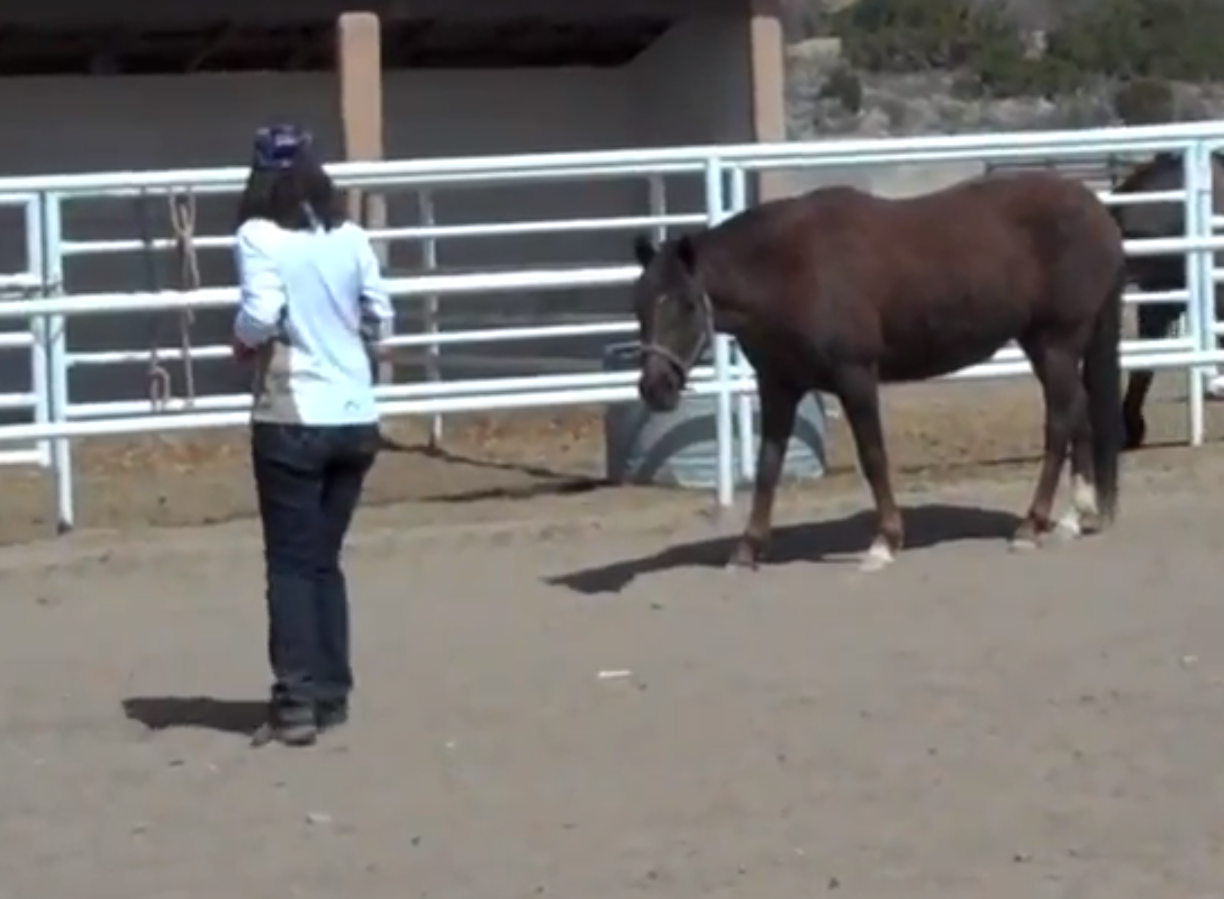 And also, once you learn how to adjust your energy to different horses, then you might be able to devise a way to do some foundations you never thought you could do, in a softer, gentler way.
And also, once you learn how to adjust your energy to different horses, then you might be able to devise a way to do some foundations you never thought you could do, in a softer, gentler way.
This is just part of our learning process, learning how to parse out what is good for our horse and what is not. As I work I begin to see deeper and deeper layers of it and know what will work and what won’t. Other times I’m completely surprised by what works, but when I look back, what works is completely aligned with who the horse is and what they can handle. It also is what works for me.
Most horses are expected to do some kind of work, and it is also good for them, provided it is the right job for the right horses. For so many horses who aren’t working or can’t work at anything, it is important for them to feel useful and well-regarded. The Liberty Foundation work can do that for all horses, whether working or not. This is something all horse can accomplish, and maybe, by doing this, they can eventually do more.
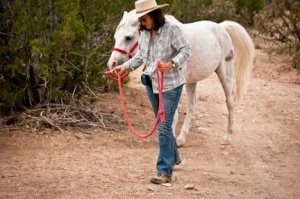 I work with Liberty Transitions, which include work-in-hand “On Line” and “On Board.” Some horses who come to the program are already being ridden and walked around on a lead line. However, there are ways to make these transitions more fluid, so the horse doesn’t have resistance to work in hand or to being ridden. There may be physical restrictions involved with these activities that can be explored with bodywork if necessary.
I work with Liberty Transitions, which include work-in-hand “On Line” and “On Board.” Some horses who come to the program are already being ridden and walked around on a lead line. However, there are ways to make these transitions more fluid, so the horse doesn’t have resistance to work in hand or to being ridden. There may be physical restrictions involved with these activities that can be explored with bodywork if necessary.
Horses in riding stables have very little free time in big spaces. They are led by halter a lot, ridden and then put away again. They benefit from more time at liberty. Horses on pasture not being ridden are moved around a lot of times without the use of a halter. Their in-hand skills can get rusty.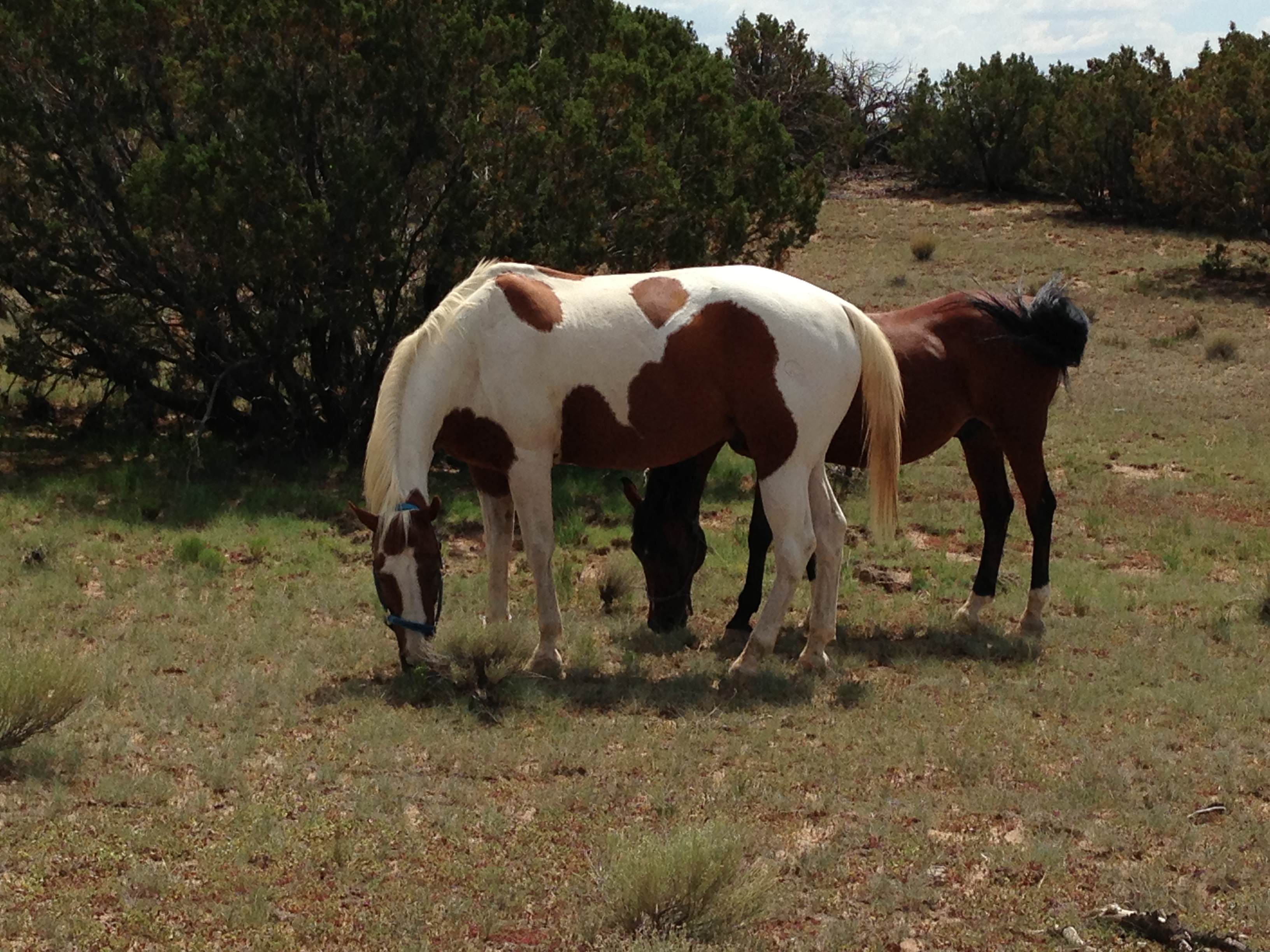 These are just a couple of examples.
These are just a couple of examples.
All in all we want our horses to be able to survive and flourish with or without us around, and with and without tack, since we never know what’s going to happen in life.
****
(copyright: Susan Smith, OrthoHorse)
Services: Bodywork (Ortho-Bionomy for people, Equine Ortho-Bionomy): private sessions, tutorials, phone consultations, distance healing communication and gift certificates
Liberty Coaching: clinics, mini-clinics, workshops, private and semi-private sessions, tutorials, consultations: by appointment: 505.501.2478 or emailing susansmith@orthohorse.info Spring Lessons – semi-private, private and small group sessions. Scheduling now. Contact me for details.
If you want to host a clinic in your area, contact me to make arrangements. Prices will vary according to location and travel. susansmith@orthohorse.info 505-501-2478
I conducted a free Liberty Coaching Call on March 12. If you did not have a chance to listen, here is the link: http://www.susith.com/orthohorse/freehorseatlibcall.mp3
On the schedule for 2014:
June 14th – Trail Riding Clinic
Where: Headquarters Well, Caja Del Rio, Santa Fe
Time: 9 a.m.-12:30 p.m.
Limited to 4 riders.
Cost: $75
Do you have questions or difficulties riding on the trail with your horse? What would you like to know to make your ride more enjoyable?
Trail riding is not just about “controlling” your horse, it is about establishing a “centaur relationship” that can carry you through all kinds of challenges.
Come learn from a seasoned endurance rider the following tips:
- Trail etiquette
- How to be safe
- How to get your horse ready for a trail ride
- What to bring with you
- Training
When we ask a horse to listen to us when we’re on a trail with other horses, we’re asking her to engage with us instead of with the other horses and the distractions that can occur on the trail. In this way, trail riding exposes what is not working in the arena and it exposes where your relationship with your horse needs strengthening. Find out some similarities between liberty training and trail riding.
In this clinic we will talk first about preparation and then work on some ways to manage situations on the trail, while in the saddle. We will take a short trail ride.
Bring:
• Snacks
• Water for you and your horse
• Hay if you want it
• Helmet
• Tack (saddle & some sort of horse headgear required)
This clinic is full but there is a waiting list. Please get on it! Contact me for enrollment & liability forms and Payment information. PayPal & checks accepted.
Combining cumulative knowledge from over 18 years of endurance riding, Liberty Horsemanship and Ortho-Bionomy bodywork practice, Susan Smith brings a unique perspective to getting a horse and rider ready for the trail – in mind, body and spirit.
Liberty Foundation work is destined to deepen your trail experience.
Contact Susan Smith@ susansmith@orthohorse.info or 505-501-2478.
September 27-28 – Spirit Horse Ranch Two-Day Liberty Foundations Clinic, Oklahoma City, Oklahoma – Engaging the Hearts and Minds of Horses. Susan Smith and Ruella Yates, co-teaching. Contact me or Ruella at 405-771-4274 (ruella@libertyfoundations.com)



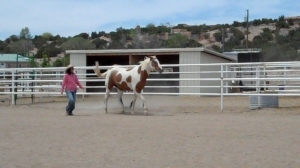
I am so glad to read your thoughts on “staking a claim” here. They confirm what I felt intuitively when I first saw this exercise demonstrated. Also, the comments about how different types of horses respond differently to the exercises are particularly on target. I feel this is true about many other things in a horse’s life as well, including their diet, exercise, job, training method and more. What you describe about the woman who staked a claim with her shy mare is a perfect case in point. Thanks for posting about this. It’s SO important to keep in mind with our equine friends!